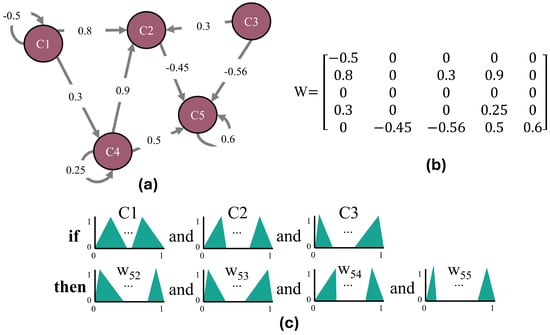Eng, Vol. 6, Pages 37: A Review Study of Fuzzy Cognitive Maps in Engineering: Applications, Insights, and Future Directions
Authors:
Georgios D. Karatzinis
Yiannis S. Boutalis
Fuzzy Cognitive Maps (FCMs) have emerged as powerful tools for addressing diverse engineering challenges, leveraging their cognitive nature and ability to encapsulate causal relationships. This paper provides a comprehensive review of FCM applications across 15 engineering sub-domains, categorizing 80 studies by their learning family, task type, and case-specific application. We analyze the methodological advancements and practical implementations of FCMs, showcasing their strengths in areas such as decision-making, classification, time-series, diagnosis, and optimization. Qualitative criteria are systematically applied to classify FCM-based methodologies, highlighting trends, practical implications of varying complexity, and human intervention across task types and learning families. However, this study also identifies key limitations, including scalability challenges, reliance on expert knowledge, and sensitivity to data distribution shifts in real-world settings. To address these issues, we outline key areas and directions for future research focusing on adaptive learning mechanisms, hybrid methodologies, and scalable computational frameworks to enhance FCM performance in dynamic and evolving contexts. The findings of this review offer a structured roadmap for advancing FCM methodologies and broadening their application scope in both contemporary and emerging engineering domains.
Source link
Georgios D. Karatzinis www.mdpi.com


